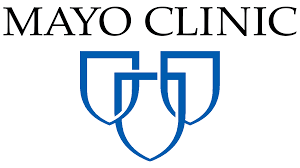Medical Treatment of Alopecia
Unraveling the Tangle
Medical Treatment of Alopecia
Hair, for centuries, has played a pivotal role in self-expression and identity. So, when alopecia – the medical term for hair loss – strikes, the psychological fallout can be just as significant as the physical changes. Luckily, advances in medical treatment of alopecia are transforming the narrative, offering hope to those grappling with this condition.
Alopecia can stem from various causes, including hormonal changes, autoimmune disease, infections, and even stress. This wide range of origins results in various forms of alopecia, each requiring a unique approach to treatment.
Androgenetic alopecia, often genetically-driven hair thinning common in both men and women, has proven to respond to topical minoxidil (Rogaine). For men, finasteride (Propecia) — an oral medication that curbs the hormone activity contributing to hair loss — can also be an option.
Autoimmune conditions, like alopecia areata where the body’s immune system attacks healthy hair follicles, may find reprieve in corticosteroids. These can be administered topically, orally, or via injections depending on disease severity and patient preference.
For more severe or recalcitrant cases of alopecia areata, new frontiers in treatment have emerged. Drugs like Janus kinase (JAK) inhibitors, initially developed for rheumatoid arthritis, have shown potential in promoting hair regrowth, although they are not yet FDA-approved for this use as of my knowledge cutoff in September 2021.
Other treatments like platelet-rich plasma (PRP) therapy, which involves injecting growth factors from the patient’s own blood to stimulate hair growth, and low-level laser therapy, which uses light energy to energize hair follicles, have added to the arsenal against hair loss.
While numerous, these treatments aren’t without limitations. Many require ongoing use for continued benefit, and not all treatments are effective for everyone. Additionally, potential side effects and costs are important considerations.
That said, the expanding array of medical treatments for alopecia provides reasons to be hopeful. By working closely with a healthcare provider, individuals dealing with hair loss can navigate these options to find the most effective treatment strategy, moving closer to regaining not just their hair, but also their confidence.
The journey to a more confident you starts with one decision. That is the decision to get treated, why wait Book Online today? If you’re on the fence or have questions brewing, remember: We at Sullivan Dermatology are always here to help.
Videos
Medical Treatment of Alopecia
Understanding Hair Loss and Available Treatments
If you are experiencing hair loss and have been diagnosed with alopecia, you may be an ideal candidate for treatment. Whether you have alopecia areata, androgenetic alopecia, or alopecia totalis, seeking professional advice is essential to determine the most suitable treatment options based on your specific condition and individual needs.
Several treatment approaches are available for alopecia, including topical medications, oral medications, and hair transplant surgery. Two commonly used treatments are oral minoxidil and finasteride.
Oral minoxidil is a medication originally developed to treat high blood pressure. However, it has shown promising results in stimulating hair growth when taken orally. It works by widening blood vessels, improving blood flow to hair follicles, and prolonging the anagen (growth) phase of the hair cycle.
Finasteride, on the other hand, is an oral medication that specifically targets androgenetic alopecia, also known as male or female pattern baldness. It inhibits the conversion of testosterone to dihydrotestosterone (DHT), a hormone that contributes to hair loss in genetically susceptible individuals. By reducing DHT levels, finasteride helps to slow down hair loss and promote hair regrowth.
The results of treatment for alopecia can vary depending on the individual, the type of alopecia, and the chosen treatment approach. With oral minoxidil, individuals may experience visible hair regrowth and increased hair density over time. Finasteride, on the other hand, can help to slow down the progression of hair loss and promote the maintenance of existing hair.
It’s important to note that results may take time, and consistent use of the prescribed medications is crucial to achieve and maintain the desired outcomes. It’s recommended to consult with a healthcare professional specializing in hair loss to determine the most suitable treatment plan for your specific condition.
In conclusion, for individuals experiencing alopecia, understanding the available treatment options is essential. Oral minoxidil and finasteride are two effective treatment approaches that have shown positive results in stimulating hair growth and slowing down hair loss. Consult with a healthcare professional to discuss your options and create a personalized treatment plan tailored to your needs. Regain your confidence and embrace a fuller head of hair with the right treatment for your alopecia condition.
FAQs About Medical Treatment of Alopecia
Topical minoxidil (Rogaine) and oral finasteride (Propecia) are commonly used treatments for androgenetic alopecia.
Corticosteroids help to suppress the overactive immune response that leads to hair loss in alopecia areata.
JAK inhibitors are a type of medication that blocks the action of Janus kinase enzymes, which are involved in the immune response. While not yet FDA-approved for this use as of my knowledge cutoff in September 2021, they have shown potential in promoting hair regrowth in alopecia areata.
PRP therapy involves injecting growth factors from the patient's own blood into the scalp to stimulate hair growth.
No, the effectiveness of treatments can vary depending on the individual and the specific type of alopecia.
Side effects can vary depending on the treatment, but may include scalp irritation, unwanted hair growth on adjacent skin, changes in hair color or texture, and systemic effects in the case of oral medications.
Most treatments require ongoing use for continued benefit. Stopping treatment often results in the return of hair loss.
Costs can vary widely depending on the treatment, insurance coverage, and geographic location.
Yes, a healthy diet, managing stress, and avoiding harsh hair care practices can potentially improve hair health and reduce hair loss.
Consult with a healthcare provider or a dermatologist specialized in hair disorders for an accurate diagnosis and tailored treatment plan.






